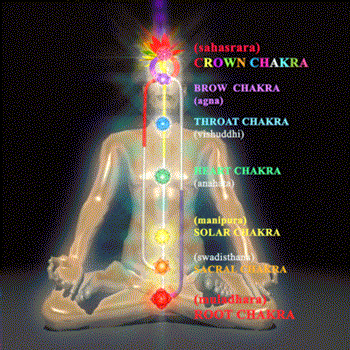CONVERSATIONS WITH SAI
Satyopanishad - part 17:
Direct Directions from the Divine
In response to your positive feedback to this section where we have a conversation with the Divine, we continue with Prof. Anil Kumar’s ‘Satyopanishad’ following Dr. John Hislop’s series ‘Conversations with Bhagavan Sri Sathya Sai Baba’ that ended in January 2008.
This series is also in the question-answer format that many devotees prefer, and has answers from Bhagavan on topics as wide ranging as the origin of evil, the goals of human life, and aspects of God – embodied and formless, to price hikes, women’s liberation, vegetarianism, and the generation gap among people of the present times.
Published in two parts by the author, these volumes have 270 questions in all, which are neatly grouped under separate chapters. In this issue, we continue the fifth chapter: 'Concepts'Chapter 5: Concepts
(Continued from the previous issue)
Prof. Anil Kumar: Swami! One cannot escape from the effects of fate or destiny. Things are preordained, and accordingly events happen in our life. This being inevitable, we suffer and face difficulties. Would you please tell us the way out of this?
Bhagavan: Everything in life is nothing but a reflection of your own thought and deed of your earlier life or lives. You pretend happily to think that none can notice you. But God within you knows fully well all your thoughts, feelings and deeds. God is everywhere. You cannot hide anything from Him. One day or other you must face the consequences of your actions. This is the supreme truth.
 |
You think and blame someone else, holding him responsible for your troubles. You are thoroughly mistaken here.
Your actions are responsible for both the good and the bad you experience in this life. God is an eternal witness of all human activities. He created this world and gave it to man for his enjoyment, but on one condition that he must face the consequences of his own actions.
God is like a postman. He is least bothered about the contents of the letters that He hands over to people. It is all a matter of the relationship that exists between you and the one who writes you a letter. God is not concerned in any other way about the matter. Well, you receive a wedding card, you don't pay complements to the postman, do you? If you receive a threatening letter from someone, you don't blame the postman either. The postman is merely an instrument in the process of delivering letters.
But prayer does help you to withstand tensions and problems with courage. Intense prayer, deep devotion, strong faith, sincere repentance, constant yearning and supreme love for God can alter the sequence of events in life. They can make even God reverse His own will.
Take for example, the life of Markandeya. Fate granted him only sixteen years of life. But his devotion to Lord Siva was so intense that He made him immortal. God had to review and revise His own master plan in response to the prayers of Markandeya.
Take another example. There is a prisoner punished according to the laws of the penal code. During the period of imprisonment, if the character and conduct of the prisoner are found to be good and if he follows all the rules, regulations, and code of discipline imposed by the jail authorities, there is scope for the reduction of his jail term. There is another point you should note. Suppose the appeal of a person in a criminal case is lost in all the courts from the district level to the High Court and even the Supreme Court, and when punishment like a death sentence or life imprisonment becomes imminent and inevitable, the President of India can still order his release from jail on grounds of mercy and for special reasons.
Similarly, though you are bound to suffer and destined to face difficulties as a result of your past actions, God in response to your sincere prayer and repentance will change the course of your life and save you from your suffering. God confers special grace on you being pleased with your single-minded devotion to Him.
Prof. Anil Kumar: Swami! The Bhagavad Gita wants us to give up the fruits of our actions, karmaphalaparityaga, both good and bad. Since we do good rarely, there is very little or none to offer you as the fruits of our good actions. We feel that it is not proper to offer evil or bad to You. What is to be done?
Bhagavan: You have to surrender both good and bad to God. Never get yourself attached to the results of your actions, be they good or bad. God is beyond these two opposites as He is non-dual. Any water, pure or impure, when mixed with Ganga, you will notice, does not affect the sanctity of Ganga. The sanctity never diminishes. Similarly, whatever you put into the fire gets burnt. The fire is in no way affected or polluted by those things that are put into it. Hence, if you offer both good and bad to God, ultimately you will be benefited.
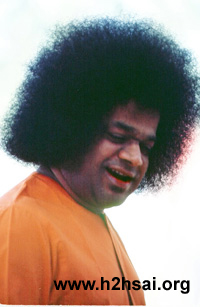 |
A small example: Suppose you have a five hundred rupee currency note in your pocket, and you need to go out on some business and return later. You will be very careful to see that you do not lose it. You keep your hand on the pocket if you go to a cafeteria for a cup of coffee so that no one will pick your pocket. Even in a theatre, you will be vigilant. But on the other hand, if you deposit that money in the bank, it will be credited to your account and it will be safe.
Then, you don't need to bother about it further. So also, if you surrender all the good you have done to God without attaching any value to the results, what happens is that you will be humble and simple. Here you do not take the credit. You thank God. You are full of thankfulness and gratitude to God. But if you own and claim the results of all your good and meritorious deeds, you will feel that you are the doer, so much so, you will become proud and egoistic. Hence, you should surrender the reward of your good actions to God.
Then, how about the evil or bad to be offered to God? You may feel that it is not proper to do so. Yet, you will notice that it will help you finally. Here’s a small example for you in this matter. Suppose you have with you a spoiled, dirty and half torn five hundred rupee note. You don't throw it away as it is a valuable currency note. But you have not been able to use it; no one will accept that note. You are not in a position to buy anything. So, you can neither throw it away nor use it. But, if you deposit the very same currency note in the Reserve Bank, they accept it and give you a brand new note. One thing is very necessary. The number on the currency note should be very clear for them to accept and give you a good note.
Similarly, the currency note of your deeds and consequences of your bad action, if offered to God, He will see the 'number' of 'devotion' on the note and give you in turn the good note or transform you. God is the Reserve Bank. Only God can receive your evil tendencies and misdeeds and transform them into good ones and give them back to you. Hence, both good and bad must be offered to God for your own ultimate benefit.
Prof. Anil Kumar: Swami! All the experiences, which are dual, are obtained due to our mind. Swami says 'Mind is a mad monkey.' Pleasure and pain are both due to our mind. How are we to annihilate the mind (manonasanam)?
Bhagavan: The mind never makes you suffer; it all depends upon the way you use it. It is everywhere. It takes the form of that into which it gets. It is deathless. So, it is said that the mind is the world, manomulamidam jagat. Therefore, annihilation of the mind, manonasanam is not correct. What you should desire is the merger of the mind with the divine, manolaya.
Just as the river merges in the mighty ocean, the mind should also merge in the Self. The mind surrendered to God becomes Ramadas, servant of Rama. But the mind full of desires is a slave to the organs, kamadas.
The mind should not be allowed to be lured by what we call in Telugu balimi, strength, kalimi, wealth and chelimi, friendship. It should be filled with divine thoughts so that it may become one with God.
Prof. Anil Kumar: Swami! Are there any who attained tadatmya (union) with God? We hear that total identification with God is the highest step in spirituality.
Bhagavan: Yes. There are many who experienced that state of total identification with God. In fact, a devotee should aim at it. There was a Westerner by name, Hen, who was very intelligent. The famous scientist, Darwin, was his guru. He started seeing his guru by contemplating on him continuously. Darwin concentrated his vision on a star and experienced certain vibrations. His student also reached that state.
You also must have heard of Sri Ramakrishna Paramahamsa. At one time, while worshipping Lord Sri Rama, he considered himself Hanuman. It is reported that he developed a short tail during that time.
 |
You also find another illustration in the great epic Ramayana. Bharata wanted Rama to come back to Ayodhya and rule the kingdom. He pleaded with him repeatedly. But, Rama refused to return, since he had decided and vowed to follow the command of his father and follow dharma in totality. Bharata left the palace, after Rama promised that he would return immediately after the period of exile.
The period was almost over and Bharata was expecting Rama to return at the appointed hour. Unable to bear the anguish at seeing no sign of Rama's arrival, Bharata got ready a funeral pyre and was prepared to jump into it, ready for self-immolation. In the meantime, Rama had sent Hanuman in advance with a message to Bharata in order to avert this situation and to inform Bharata of his arrival as he had promised before. Hanuman immediately dashed off to Nandigrama where Bharata was staying.
As Hanuman was just landing, he noticed the scene there. Bharata was circumambulating the pyre into which he was about to jump and burn himself. Hanuman thought, “How is it that Rama is here? Why is Rama circumambulating the pyre?" Evidently, it means that Bharata looked exactly like Rama due to his constant meditation on him. This left even Hanuman confused. This is the meaning of what the Veda says, Brahmavid brahmaiva bhavati - ‘Constant awareness of Brahman makes you Brahman’.
Towards the end of the Ramayana, after he had killed Ravana, Rama was returning to Ayodhya along with his consort Sita and Lakshmana in a chariot. Bharata himself was driving the chariot. As the chariot was approaching the outskirts of Ayodhya, the inhabitants were eager to receive Rama, Sita and Lakshmana with garlands. Here again, the people were confused since Bharata, holding the reins of the chariot, looked exactly like Rama. When the people were about to garland Bharata mistaking him for Lord Rama, Bharata had to silently and softly point out to Rama with his folded hands as to who should be garlanded. This is again an instance of total identification, tadatmya.
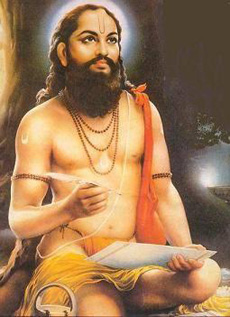 |
Here is another example. You must have heard of Swami Samartha Ramadas, the preceptor of emperor Sivaji. Like Bharata, Swami Samartha Ramadas also looked for some time exactly like Lord Rama in his form as well as in his manner of walking with the bow and arrow on his shoulders.
People, watching this, were amazed, and one of them asked him, “Swami! If you are really Lord Rama, can you shoot the bird sitting over there on a branch located on the top of that distant tree?" Ramadas killed the bird with an arrow. It fell on the ground. Someone said then, “Swami! You have killed the bird for no reason. It did no harm to you. Rama, known for compassion, never kills anyone without a valid reason. Can you revive it now?" Then, the Swami collected the dead bird with both his hands and lifted it. He prayed for its life.
Lo and behold! The wings started to flutter. The bird moved slowly and finally flew away. All present there joined in a chorus shouting in praise of the Swami, “Jai! Samartha Ramadas Ki Jai," (Our praises to Swami Samartha Ramadas!) This is an instance of total identification with God.
Prof. Anil Kumar: Swami! You are referring to anubhava gyanam, practical knowledge. We think we know many things. Is this not wisdom?
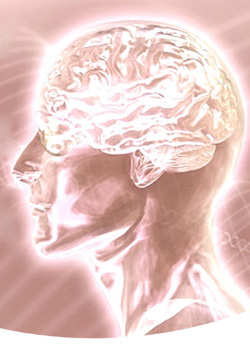 |
Bhagavan: Certainly not! The pity is that you do not realise that you do not know. You know very little and what you know is at best negligible. But you think you know everything. What you study is very little and it is a big mistake if you think that you know everything. It is foolish too. There is a lot to be known. What you know is but a fragment, and it is not total knowledge.
Now, look! What is this? This, as you see, is a handkerchief. (At this point, Swami kept the handkerchief in his grip and held it in such a way that only a bit could be seen outside his fist.) Now, what is this? This is only a piece of cloth. It is not the whole kerchief. (Then Swami spread the kerchief and held it in His hands). Now, what is this? You will say, ‘It is a kerchief'. Seeing only a bit, you cannot call it a handkerchief. So also, acquiring a little knowledge, you can hardly claim to have attained total knowledge. This is a mistake the educated commit in this modern age. They know a little and claim to know everything.
Complete or total knowledge is awareness, and not knowledge of a bit or a fragment. This you should remember. Go for the whole. Be aware!
Prof. Anil Kumar: Swami! When does a devotee get total experience?
Bhagavan: Bhakti finds its fulfilment in mukti. Till then, we can't say that a devotee has got total experience. Total experience is purna anubhavam, advaitanandam, a state of nondual bliss, brahmanandam, supreme bliss, and nityanandam, eternal bliss. A simple example: A river flows incessantly. There may be a number of obstacles in its way. Yet, the river flows on taking different turns. It overcomes the obstacles and proceeds forward. How long and how far? It must reach the ocean and merge in it. The ocean does not permit the merger so easily. It drives away the river or pushes it out. Still the river does not give up its attempt. Finally, as the ocean tides rise, the river merges. When layam, sayujyam, merger of the two takes place, there the river finds vis'ranti and pras'anti, rest and peace.
Similar is the relationship between a devotee and God. The flow of devotion leading to merging in God is sadhana. The river merging in the ocean is the merger of the individual jiva with brahman, which is known as jiva brahmaikyata; a state of perfect merging or unison of jivatma and paramatma or the individual and the Ultimate Lord.
Prof. Anil Kumar: Swami! What is wisdom?
Bhagavan: Wisdom is not textual information. Wisdom is not scholarship. Wisdom is not preaching. Wisdom is not verbal or vocal. Wisdom is not an academic Master's degree or Doctorate. Wisdom is practical experience. Wisdom cannot be stuffed into the head.
Wisdom is what enables you to identify your own mistakes, faults, and defects, and correct them and finally lead you towards not repeating any errors of the past.
Prof. Anil Kumar: Swami! In the big human body, where is the source of life located?
Bhagavan: You think it is the heart. No. Don't you know that today surgeons can do heart transplantations too? Even while it is done, the patient doesn't die. Then, where is the life principle that keeps you living? In the spinal column between the 9th and 12th vertebrae, there is the life principle that acts as the main switch.
In the mantrapuspam (vedic hymn) it is clearly indicated: vidyullekheva bhasvara, a lightning or electric current acts as the life centre.
Prof. Anil Kumar: Swami! What are the main principles of life?
Bhagavan: A newborn baby cries, but a grownup man should part from this world smiling. Do you know why the baby cries? It cries because of the misfortune that lies ahead of it - a long, troublesome and problematic life.
In the words of Adi Sankara, punarapi jananam punarapi maranam, punarapi janani jathare s'ayanam. Everyone is born again and again, life after life. So, the infant cries. But at its birth, its parents, its relatives and elders celebrate, smile and distribute sweets, don't they? Life begins with a question, ‘Koham’, (who am I?) But, it should find an answer ‘Soham’, (I am He, I am God), before it ends. We get the answer, through sadhana, spiritual practice or exercise. There is no point in going through the question paper again and again without finding the answer.
We can in one way divide life into three phases: morning, midday and night. Morning is the stage of an infant, the four-legged one crawling on the ground on both hands and both legs. Midday is the stage of a youth, the two-legged, walking with two legs. Night is the stage of an old man, the three legged with a walking stick as an aid to the two weakened legs.
Brahmacarya, celibacy is the foundation over which a three storied building, with the first floor, the stage of a householder; the second floor that of a recluse; and the top floor that of a renunciant is built. Thus, for the mansion, celibacy is the foundation.
 |
By the time a person becomes fifty years old, he should have full control over his five organs of action, karmendriyas.
By the time he is sixty he should have conquered all the six weaknesses, kama, desire, krodha, anger, lobha, greed, moha, infatuation mada, pride, and matsarya, jealousy.
At the age of seventy, after overcoming the weaknesses, he is revered as one of the seven sages, saptaris; like the seven notes of music, saptasvaras; and the seven seas, saptasamudra.
At the age of eighty, having followed the eight paths of astanga yoga, he shines like the eight lords of the directions as tadikpalakas.
At the age of ninety, life shines like nine precious gems, navaratnas having followed the nine paths of devotion.
At the age of hundred, he is master of the five organs of perception, and the five organs of action, and is divine having experienced divinity in depth, brahmavid brahmaiva bhavati.
You should also know another point. Whatever you do, it is for your own satisfaction and not for other people. You put on new clothes; for whom do you wear them? It is for your satisfaction that you wear a new dress. You construct a new house; for whom? It is for you only, isn't it? You eat an apple not for the benefit of the apple; it is for your own satisfaction.
Understand that SelfisGod. You have to play well your role in the drama of your life. Swami is Sutradhari, the director, while you are the actor, patradhari. Consider this an opportunity. Lead your life in an ideal way and get a good name in society. God should say that you are good. This is what is said in the Gita, manman a bhava madbhakto madyaji mam namaskuru - “Don't pray for the fulfillment of desires. Pray to be with Him and Him alone.” Then, everything else will be added unto you. Be always humble and respectful.
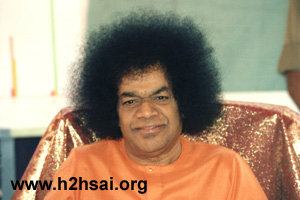 |
In South India, food is served on plantain leaves. When all the items are served, the leaf on account of its weight, remains without being blown off by the wind; when it is empty, it is blown off because of its lightness. In other words, empty vessels make much noise. A tree loaded with fruits is always bent because of the weight of the fruits. Similarly, a true scholar is humble and modest. A cloudlike mass of air goes up higher and higher, while a cloud of vapour comes down. A person with ego ruins himself.
There are four main principles you should know and follow in life. The first principle is tyaja durjana samsargam - run away from bad company. The second principle is bhaja sadhu samagamam - be always in good company. If necessary, you better lose or pay money if you must in order to avoid bad company. You should never be separated from good, pious and noble people.
The third principle is smara nityamanityatam - bear in mind always what is impermanent or transitory. In other words, distinguish that which is divine from the one that is temporal. You are gifted with intellect for discrimination and judgment. Discriminate between what is transient, perishable and dual and what is eternal, immortal and non-dual.
The fourth principle is kuru punya mahoratram - do meritorious deeds day and night. The body is meant for serving others. Paropakararthamidamsariram.
END OF CHAPTER 5
(To be continued...)
To access all the previous issues of Conversations With Sai, please click here. |


